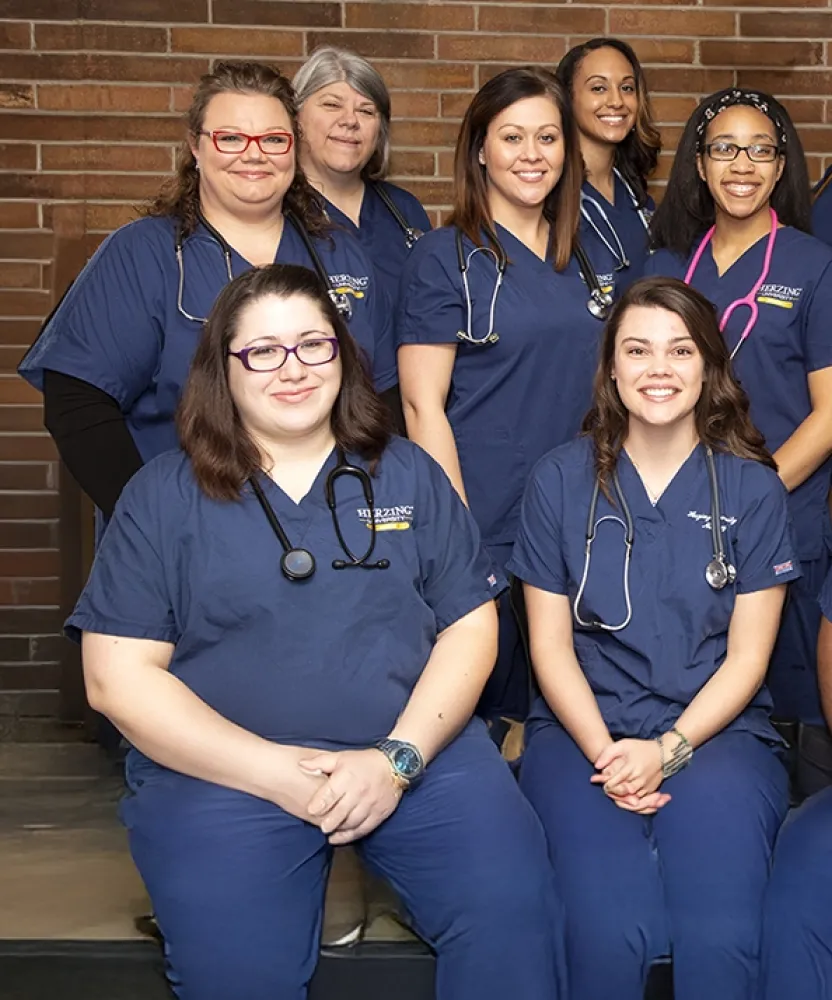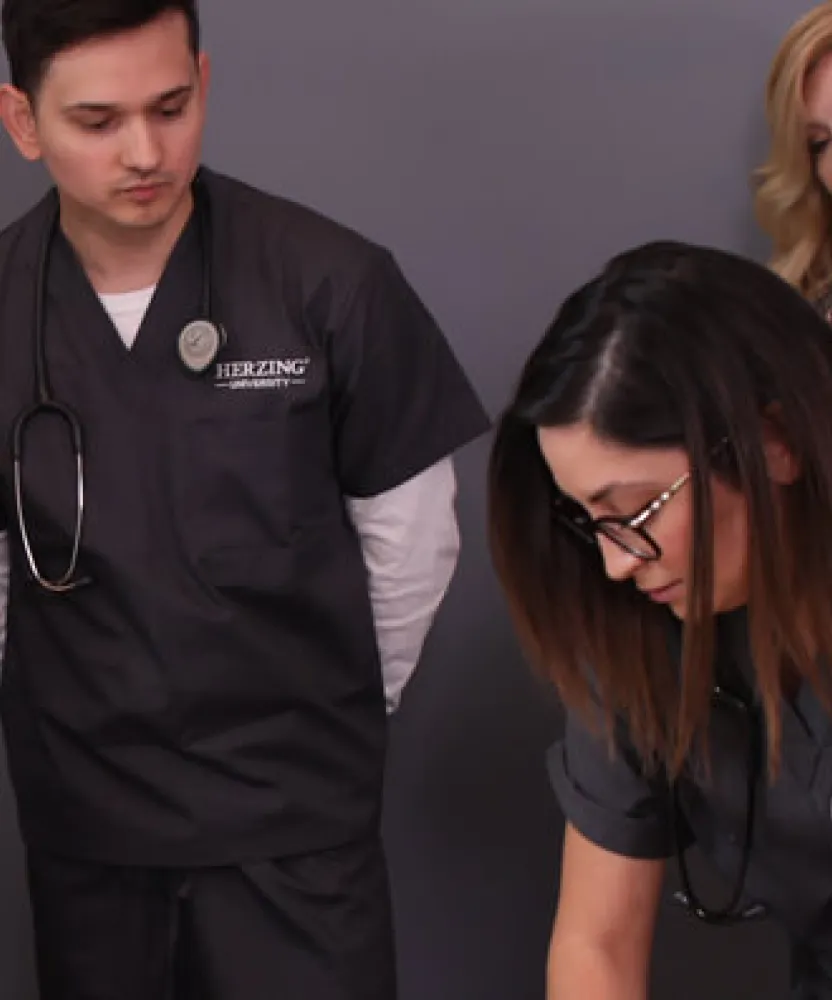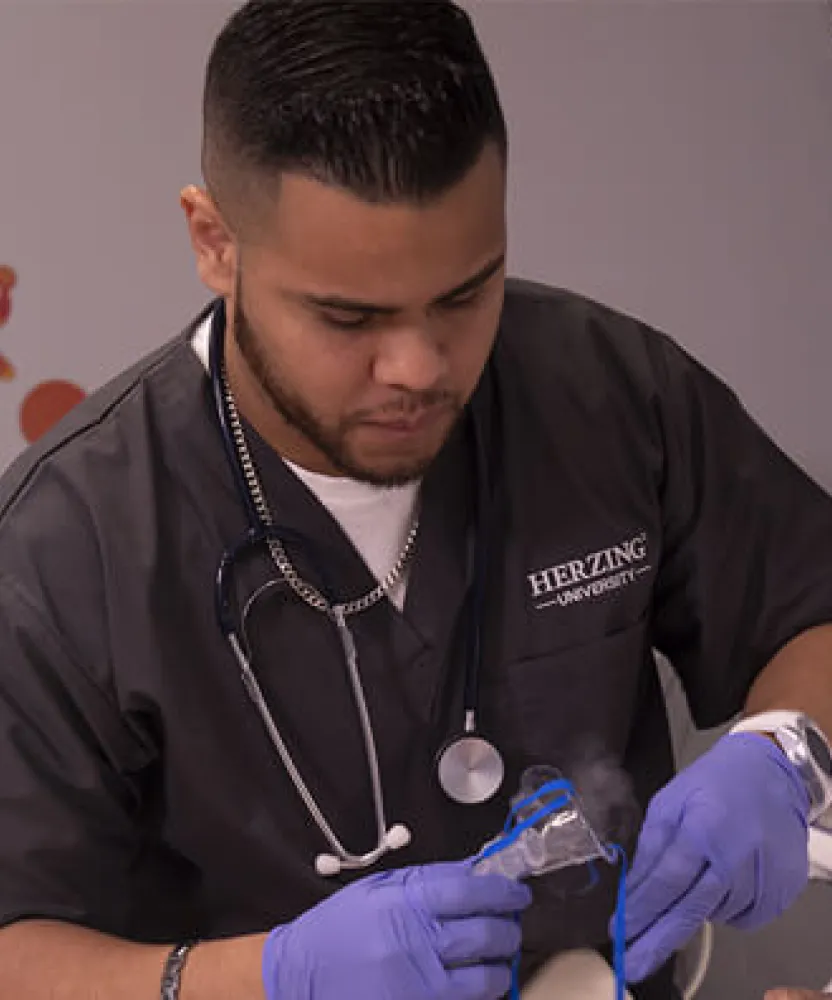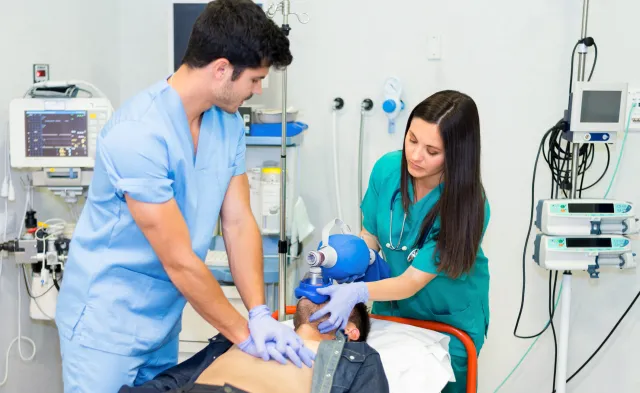Go from CVT to RN with Herzing Minneapolis
| Accreditation | CCNE accredited,1 Accredited by the Higher Learning Commission |
|---|---|
| Transfer credit | Up to 90 approved credits |
| Format | On-campus classes at our Minneapolis, Minnesota location + online |
| Pathways | Earn dual credit towards a Master of Science in Nursing (MSN) |
| QuickPaths | Transfer credit, stackable credentials, and adaptive learning technology build a faster pathway to a higher education with Herzing University |
Learn More Today!
BSN Bridge for Cardiovascular Techs - Minneapolis, MN
The BSN Bridge option for CVTs is a 120-credit undergraduate program which prepares you for a career as a Registered Nurse (RN). The Minneapolis campus bachelor's degree program provides students with fundamental knowledge and skills in the nursing process, health assessment, managing care, evidence-based practice, and much more.
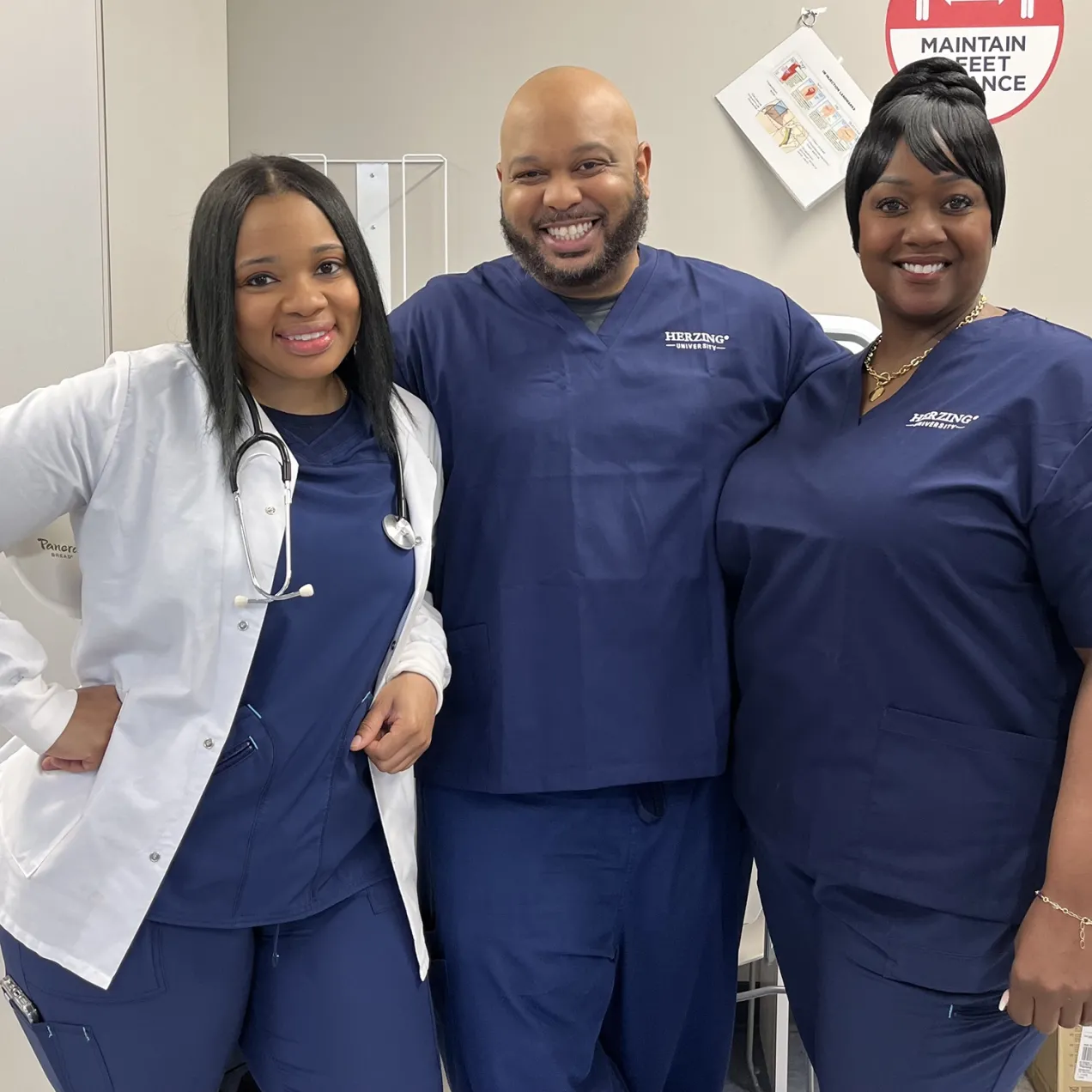
Career-focused curriculum
Discover the crucial knowledge and skills required to succeed in your work and build a foundation for continued career growth.
Flexible schedule
We work hard to help you maintain school-life balance, striving to be as flexible as possible for busy non-traditional students.
Virtual services
Access to extensive virtual services, including academic advising, tutoring, support services, technical support and library services.
Lifelong support
We support your ongoing career advancement by providing comprehensive, personalized student services with lifelong career coaching.
Rolling admissions
No application deadlines to worry about. Apply when you’re ready and prepare to get started soon.
You may qualify for our online option
We now offer an online BSN Bridge option for CVTs featuring asynchronous didactic (lecture) courses, meaning you can complete all gen ed and core nursing courses online on your own schedule.i
The online bridge option includes practical, hands-on training including clinicals and intensives, which you must attend at a designated Herzing or partner site.
This can be a great choice if you are seeking maximum flexibility in completing your didactic coursework throughout the program.
i. The online and on-campus programs have unique enrollment requirements. View our online CVT to BSN Bridge Option admission requirements.
CVT to BSN option classes & curriculum details
The BSN Bridge program in Minneapolis uses online & on-campus classes, lab simulations and clinical practice to help cardiovascular techs develop the tools needed to transition into a role as a registered nurse and excel.
Upon graduating you will be eligible to apply for the National Council Licensure Examination for Registered Nurses (NCLEX-RN), meet the Minnesota Board of Nursing requirements and earn your RN license.
| Program | Months i | Credits |
|---|---|---|
| Bachelor of Science in Nursing - Bridge Option - Minneapolis | 28 | 120 |
i. Average number of months for students to complete program
Required Courses in Nursing
55.00 semester credit hours, are required.
Dual Credit Option for Taking Graduate Level Courses
Dual Credit Options are not available for New Orleans students. See Academic Information for full requirements under title Earning Graduate Credits as an Undergraduate Student. Undergraduate Course Graduate Course Equivalency NSG 321 Advanced Leadership and Management NU 730 Systems-Based Practice (Transferrable to MSN & DNP Programs) NSG 324 Evidence Based Practice in Nursing NU 602 Epidemiology, Research, and Theory (Transferrable to BSN to DNP Program Only) NSG 421 Nursing Informatics NU 725 Technology and Nursing Informatics in Advanced Practice (Transferrable to MSN & DNP Programs) NSG 423 Policy, Trends, & Ethics in Nursing HA 610 Health Policy and Management (Transferrable to MSN Program, except for MSNWHNP)
Required Courses in General Education
Students enrolled in the BSN program must complete a minimum of 41.00 semester credit hours in general education distributed among the following disciplines. A minimum of 9.00 semester credit hours must be upper level (300- to 400-level courses). The Herzing University General Education offerings are listed below. Refer to the General Education section of the catalog for additional information on general education requirements. 12.00 Semester Credit Hours in Communications EN 104 English Composition I EN 111 Information Literacy EN 116 Speech EN 304 English Composition II 14.00 Semester Credit Hours in Science SC 154 Anatomy and Physiology I for Nurses SC 254 Anatomy and Physiology II for Nurses SC 166 Microbiology SC 186 Chemistry 6.00 Semester Credit Hours in Humanities HU 140 Cultural Diversity HU 340 Humanities and Contemporary Popular Culture 6.00 Semester Credit Hours in Mathematics MA 109 College Algebra MA 320 Statistics 3.00 Semester Credit Hours in Social or Behavioral Science PS 101 Psychology Note: Transfer students may transfer courses that are within 1.00 semester credit hour of the courses listed above to meet these discipline requirements. Any resulting deficiency in the total of 41.00 semester credit hours required in general education may be made up with general education electives from any of the listed disciplines. Science courses being transferred in from other institutions must meet the nursing program science requirements.
Special General Education Grading Requirements for Nursing Support Courses
The following science courses must be completed with a grade of "B" (80%) or better. Only two attempts are permitted for each course and a student who fails to successfully complete in the maximum attempts is subject to dismissal from the nursing program. SC 154 Anatomy and Physiology I for Nurses Semester Credit Hours: 4.00 SC 254 Anatomy and Physiology II for Nurses Semester Credit Hours: 4.00 The following general education courses must be completed with a grade of "C" (70%) or better for a student to continue in the nursing program. SC 166 Microbiology Semester Credit Hours: 3.00 MA 109 College Algebra Semester Credit Hours: 3.00 MA 320 Statistics Semester Credit Hours: 3.00 A student who is dropped from the nursing program for failing to achieve the minimum grade specified in the courses listed above, but who otherwise meets the academic standards of the University may transfer to another Herzing degree program and/or may appeal to reapply to the BSN nursing program in a future semester. Resuming students should refer to the section on re-entering for additional requirements.
Distribution of Contact Hours by Course
Distribution of Contact Hours by Course Course Lecture Hours Lab Hours Clinical Hours Total Contact Hours Credits NSG 120 45.00 0.00 0.00 45.00 3.00 NSG 124 45.00 0.00 0.00 45.00 3.00 NSG 126 15.00 30.00 45.00 90.00 3.00 NSG 221 45.00 0.00 45.00 90.00 4.00 NSG 222 60.00 0.00 90.00 150.00 6.00 NSG 223 60.00 0.00 90.00 150.00 6.00 NSG 321 45.00 0.00 0.00 45.00 3.00 NSG 323 60.00 0.00 45.00 105.00 5.00 NSG 324 45.00 0.00 0.00 45.00 3.00 NSG 421 45.00 0.00 0.00 45.00 3.00 NSG 233 45.00 30.00 45.00 120.00 5.00 NSG 423 45.00 0.00 0.00 45.00 3.00 NSG 425 30.00 0.00 135.00 165.00 5.00 NSG 426 45.00 0.00 0.00 45.00 3.00 EN 101 45.00 0.00 0.00 45.00 3.00 EN 111 45.00 0.00 0.00 45.00 3.00 EN 116 45.00 0.00 0.00 45.00 3.00 EN 304 45.00 0.00 0.00 45.00 3.00 HU 140 45.00 0.00 0.00 45.00 3.00 HU 340 45.00 0.00 0.00 45.00 3.00 MA 109 45.00 0.00 0.00 45.00 3.00 MA 320 45.00 0.00 0.00 45.00 3.00 PS 101 45.00 0.00 0.00 45.00 3.00 SC 154 45.00 30.00 0.00 75.00 4.00 SC 254 45.00 30.00 0.00 75.00 4.00 SC 166 30.00 30.00 0.00 60.00 3.00 SC 186 30.00 30.00 0.00 60.00 3.00 Block Credit for License 24.00 Totals 1185.00 180.00 495.00 1860.00 120.00
Enrollment requirements
To be considered for admission into the program, you must hold a high school diploma or equivalent (Diploma, HSED or GED) and meet the following criteria based on your cumulative GPA:
| Cumulative GPAi | Science Requirement | TEASii |
|---|---|---|
| 3.50–4.00 | None | None |
| 3.00–3.49 | 3.00 GPA in college scienceiii | None |
| 2.50 and higher | None | Composite TEAS of 58 |
i. Students with 18 or more transferable collegiate credits will be assessed on their collegiate cumulative GPA. Otherwise, the high school GPA will be used.
ii. The Test of Essential Academic Skills (TEAS) from the Assessment Technology Institute (ATI).
iii. Based on your cumulative GPA in these college science courses: Anatomy & Physiology I and II, Biology, Chemistry, and Microbiology. Two of these courses must be used to calculate science GPA. Any of these courses completed must be included in the calculation, and no others. If you do not meet this requirement, you must score a composite score of 58 or higher on the TEAS. A grade of "B" or better must be earned for transfer credit to be awarded for Anatomy & Physiology, regardless of whether it was included in the calculation.
Waived Enrollment Fee
Discover the educational pathway designed to maximize your career potential. Reach for greater heights with Herzing University.
Going from CVT to RN
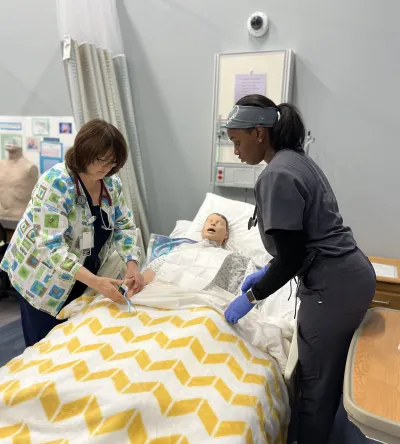
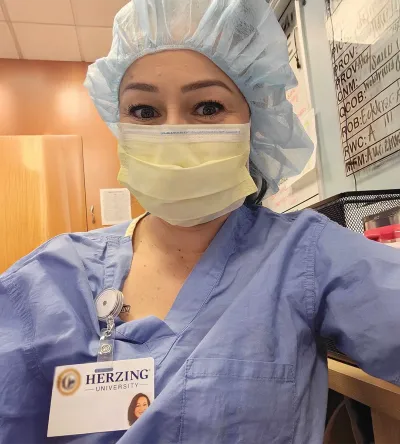

Transitioning from cardiovascular technologist to RN means expanding on your medical-based cardiovascular education into the more holistically-focused field of nursing.
As a registered nurse, you’ll be the backbone of day-to-day operations in many healthcare settings. Your duties can include:
- Develop and direct treatment plans
- Counsel patients and family members
- Ensure patient comfort
- Serve as the key connection between doctors and patients
Registered Nurse ranks as the #18 Best Healthcare Job for 2025 according to U.S. News & World Report.
Can I specialize? While a nursing degree curriculum can introduce a wider spectrum of course topics, RNs can specialize in an area of their choosing with enough education and experience. You may be able to use your experience as a CVT to help become a cardiac nurse in the future.
Job outlook and pay potential
According to the Bureau of Labor Statistics, employment of registered nurse is expected to increase 6% from 2022-2032.*
Registered nurses earn an average salary of $94,480 per year ($45.42 per hour). That represents a raise for the average cardiovascular technician/technologist in the US ($70,270 per year, $33.79 per hour).
You can take a big step forward in your nursing career by becoming an registered nurse.
Faq
Frequently Asked Questions
Didn't find the answer to your question? Send us an inquiry and we will be happy to answer all your questions!
You don’t need a bachelor’s degree in nursing to become a registered nurse. Earn your associate’s degree in nursing and you can become an RN more quickly and earn your first set of scrubs.
However, if your goal is to continue climbing the ladder to become a nurse practitioner or pursue roles in nursing leadership or administration, you may be best off enrolling in a BSN program so you can reach your goals faster.
No matter what you choose, Herzing is here to empower you to become the best nursing professional you can be.
There are many different nursing specialties to choose from. Depending on your personality, educational background and preferred working environment you can follow your own personalized path in the nursing profession.
Here are a few popular nursing specialties you may consider:
- Aesthetic or Cosmetic nurse
- Assisted living nurse
- Cardiac/cardiovascular nurse
- Emergency room nurse
- Flight nurse
- Home health nurse
- Labor and Delivery nurse (L&D)
- Med/surgical nurse
- Neonatal/NICU nurse
- Nurse Anesthetist
- Oncology nurse
- Pediatric nurse
- Public health nurse
- School nurse
- Travel nurse
You can take our nursing personality quiz to get a better idea of what you might prefer in your nursing career.
It’s a question of:
- What your goals are
- How quickly you want to reach them
If your goal is to go from LPN to RN quickly, the best choice may be an associate’s degree program since you may be able to become an RN in less than 2 years.
If your goal is to become an RN and potentially advance further by working towards a master’s degree in nursing (MSN), your best option is a bachelor’s degree in nursing program.
Read about the most basic differences between ADN vs. BSN and discover what's best for you.
Because nurses with a BSN have earned that next degree level and generally have the edge on the job market, they will on average earn a slightly higher salary than nurses with an ASN. However, there are always exceptions; an ASN with several years of an experience may earn a higher salary than an RN with a BSN who is just starting their career.
While cardiovascular technicians and technologists assist physicians in diagnosing and training heart disease and heart-related conditions, RNs provide a broader range of care with greater emphasis on holistic care of the whole person.
CVTs can have a more distinct set of hands-on tasks they regularly perform, trained for certain invasive or noninvasive cardiovascular procedures.
RNs must be familiar with a wide scope of knowledge and procedures. While RNs can specialize in cardiology, they can also specialize in many other areas and discover opportunities to advance their practice in the future.
We offer online associate, bachelor's, and master's degree pathways for those without nursing experience looking to become an RN. Eligibility varies by state of residence.
Learn more about our online nursing programs designed for non-nurses.
There’s nothing easy about being a nurse. Nurses with a thirst for knowledge, compassion, empathy, self-awareness and a constant focus on lifelong learning are truly exceptional.
Learn more about what makes a good nurse, from the quality of the care you provide to the confident smile you wear every day.
The Student Experience at Herzing
My advice to students is to take it one step at a time. Don't get discouraged and set unreasonable expectations for yourself. Life is going to happen, might as well keep moving toward your goals along the way.
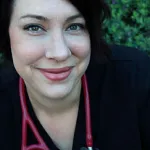
April Christine Lam
Nursing | Online CampusAccreditation & Disclosures
1. The baccalaureate degree program in nursing at Herzing University Minneapolis is accredited by the Commission on Collegiate Nursing Education (http://www.ccneaccreditation.org).
Herzing University is accredited by the Higher Learning Commission (hlcommission.org), an institutional accreditation agency recognized by the U.S. Department of Education.
* Bureau of Labor Statistics (BLS), U.S. Department of Labor, Occupational Employment and Wage Statistics 2023 / Occupational Outlook Handbook 2022. BLS estimates do not represent entry-level wages and/or salaries. Multiple factors, including prior experience, age, geography market in which you want to work and degree field, will affect career outcomes and earnings. Herzing neither represents that its graduates will earn the average salaries calculated by BLS for a particular job nor guarantees that graduation from its program will result in a job, promotion, salary increase or other career growth.
Recent Blog Posts
Waived Enrollment Fee
Discover the educational pathway designed to maximize your career potential. Reach for greater heights with Herzing University.



